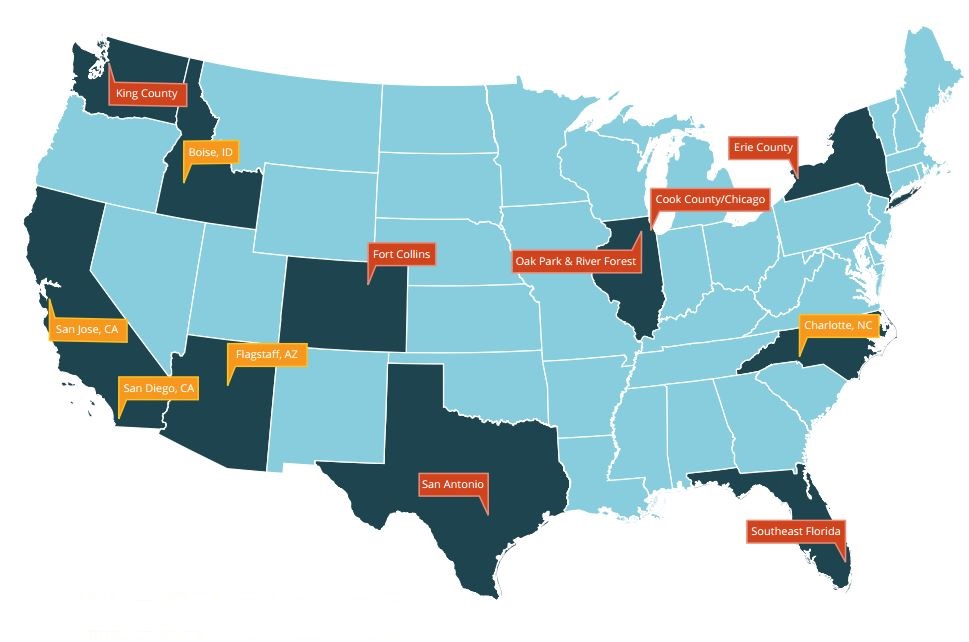Over the past month, the U.S. has seen some significant strides in renewable energy. St. Petersburg, Florida made a commitment to get 100% of its electricity from renewable energy sources by 2050. Fourteen cities from the Metro Boston Mayor’s Coalition agreed to achieve net zero carbon emissions by 2050. Six cities have already attained 100% renewable energy and 16 more have made the pledge to 100% renewable energy through the Sierra Club, Ready for 100 campaign.
The effort to tackle climate change at the local level is critical today, more than ever. To support these efforts, the Institute for Sustainable Communities convened a dozen cities and metro regions at our Sustainable Communities Leadership Academy: Clean Energy Cities last month in Chicago to explore how to accelerate the transition to renewable energy.
Over three days, the cities worked intensively with a focus on key challenges, including stakeholder engagement, financing, access to data, and ensuring the transition to renewable energy is equitable and beneficial for all residents. Our resource team of national experts provided support and expertise to help these cities advance their work.
The cities that joined us in Chicago brought with them inspiring stories and achievements, and a range of experiences, including:
- In San Antonio, the utility CPS Energy has 229MW of solar in commercial operation with more underway. The city is using its ambitious clean energy goals to drive economic development. The effort, The New Energy Economy, led to a groundbreaking agreement with OCI Solar Power to supply 400MW of solar to the San Antonio region. The agreement will lead to $100 million in capital investment over five years and the creation of at least 800 new jobs.
- Chicago and Cook County and their partners are making solar more affordable and accessible to all residents through programs like Solar Chicago and community solar pilot projects. A community solar opportunity assessment identified more than 9,000MW of site capacity, enough to offset nearly all of Cook County’s residential electricity consumption.
- King County, WA has forged a regional collaboration across 13 cities called the King County Cities Climate Collaboration (K4C). Together, they’ve established a goal to increase renewable energy from 64% in 2015 to 90% by 2030.
Transitioning our energy system is a formidable task, and the challenges of doing so may grow. But the imperative is clear: to avoid the most disruptive impacts of climate change, we need to reduce greenhouse gas emissions by 80% by 2050. The path to this goal requires deep efficiency improvements and the decarbonization of our energy supply.
If your city is ready to get on the path to 100% renewable energy, let us know. We’d love to help you join the many leaders of the renewable energy transition.

